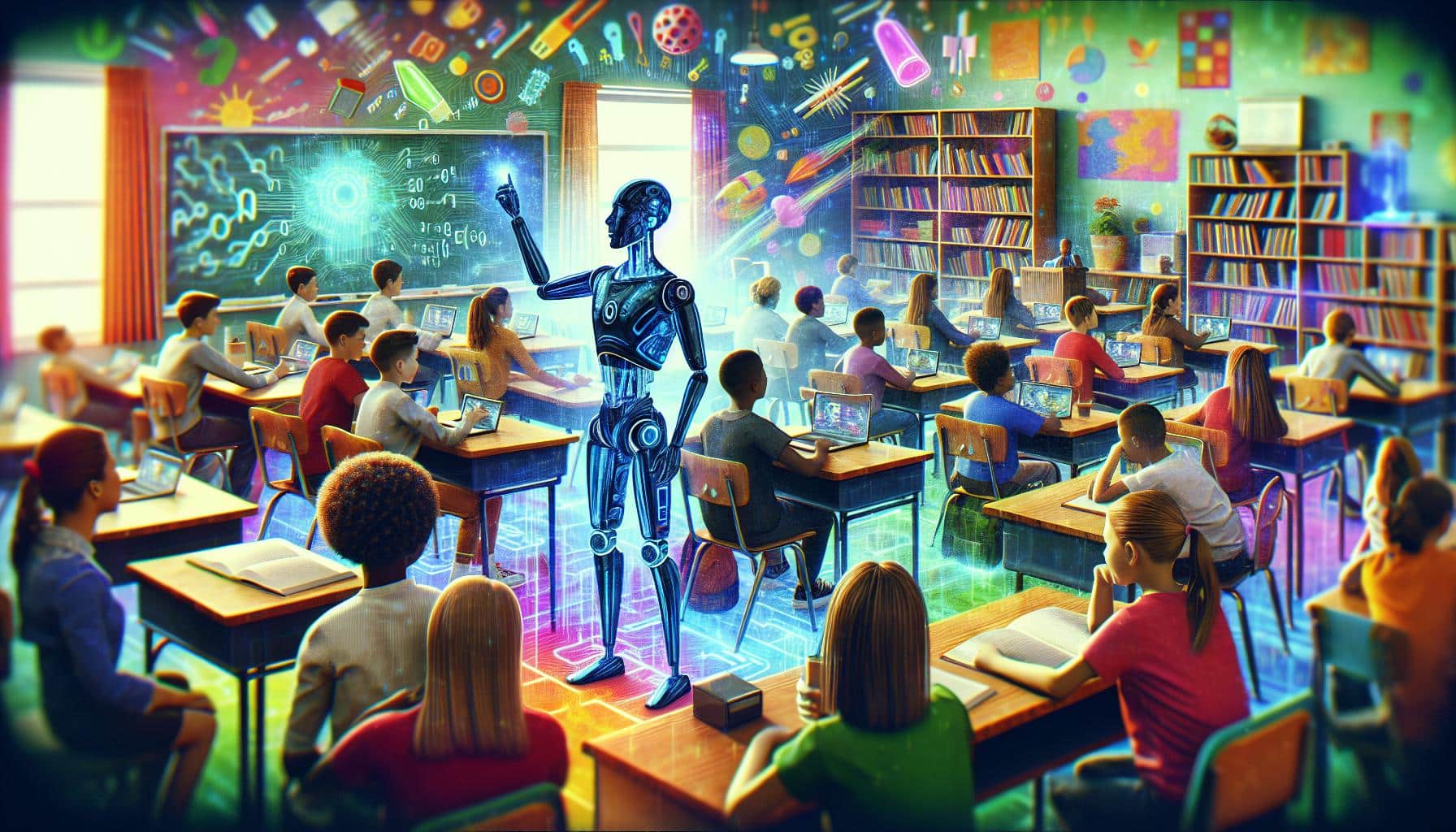Artificial Intelligence in Schools: From Bans to Embracing the Technology
As educators debate the place of artificial intelligence (AI) in schools, North Carolina education officials advocate for a shift in perspective, encouraging teachers and students to view AI as a valuable tool rather than a threat. The state’s Department of Public Instruction recently released a comprehensive guidebook on AI’s application in education, highlighting its potential to personalize learning experiences, save time, and prepare students for future job opportunities.
In line with this approach, AI can be utilized in several ways to enhance the classroom experience. It can adjust vocabulary to match students’ reading levels, tailor assignments to individual interests, automate administrative tasks, and provide tutoring outside of school hours. Additionally, AI can be used to translate materials for non-English speaking families and support students with disabilities through voice-to-text and text-to-voice tools.
However, concerns about cheating and academic integrity have been raised. Some students have claimed to have used AI to generate essays, leading to worries about over-dependence on the technology. Nevertheless, AI has proven to be a helpful tool in other aspects, such as aiding in proofreading and providing alternative phrasing for college applications and resumes.
Experts argue that AI skills are essential for students to remain competitive in the job market. According to a report on the future of jobs, 40% of all available positions in the next five years will be related to AI or machine learning. By equipping students with AI knowledge, educators hope to bridge the digital divide and provide equal opportunities for all graduates.
Despite concerns about plagiarism and cheating, educators emphasize the importance of responsible use and critical thinking when using AI-generated content. Teachers must guide students in fact-checking and citing sources to ensure the accuracy and credibility of their work. Furthermore, while some schools have implemented computer tools to detect AI-generated content, the technology’s failure rate highlights the need for educators to have a comprehensive understanding of AI to avoid false accusations.
The implementation of AI in schools requires careful consideration and planning. The North Carolina Department of Public Instruction offers guidance on finding suitable AI products, writing effective prompts, and training staff to use AI responsibly. However, each school district is at a different stage in adopting AI, with some still blocking its use for students and staff. Educators will need time and support to navigate the integration of AI into the classroom effectively.
Cabarrus County Schools in North Carolina stands as an example of successfully incorporating AI into education. Teachers have used AI to generate poetry for analysis and comparison, showcasing the potential for creative applications of AI technology in the classroom. While some districts remain cautious about AI, acknowledging its benefits and exploring its possibilities will be crucial for preparing students for the AI-driven future.
As AI continues to evolve and become increasingly prevalent in all aspects of life, educators must adapt their teaching methods to equip students with the skills and understanding necessary to navigate the AI era responsibly and effectively. By embracing AI as a personalized tutor, versatile assistant, and a valuable tool for future jobs, students can harness its potential while maintaining academic integrity and critical thinking.
Analyst comment
Positive news: The North Carolina Department of Public Instruction promotes the use of artificial intelligence (AI) as a valuable tool in education. AI can personalize learning, save time, and prepare students for future job opportunities. It can also assist students with disabilities and non-English speaking families. However, concerns about cheating exist. Despite this, AI skills are crucial for future job prospects. Educators emphasize responsible use and critical thinking. The implementation of AI requires careful planning, guidance, and staff training. Despite some schools still blocking AI use, Cabarrus County Schools in North Carolina successfully incorporates AI in education. Educators must adapt teaching methods to equip students with AI skills and understanding for the AI era responsibly and effectively.
As an analyst, I predict that the market for AI technologies and tools in education will grow as more schools and districts embrace AI for personalized learning and preparing students for future job opportunities. However, concerns about cheating and academic integrity will need to be addressed through responsible use and critical thinking education.













